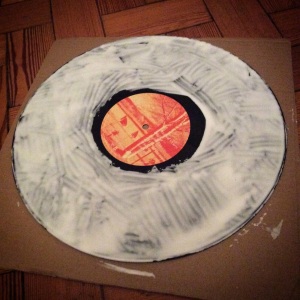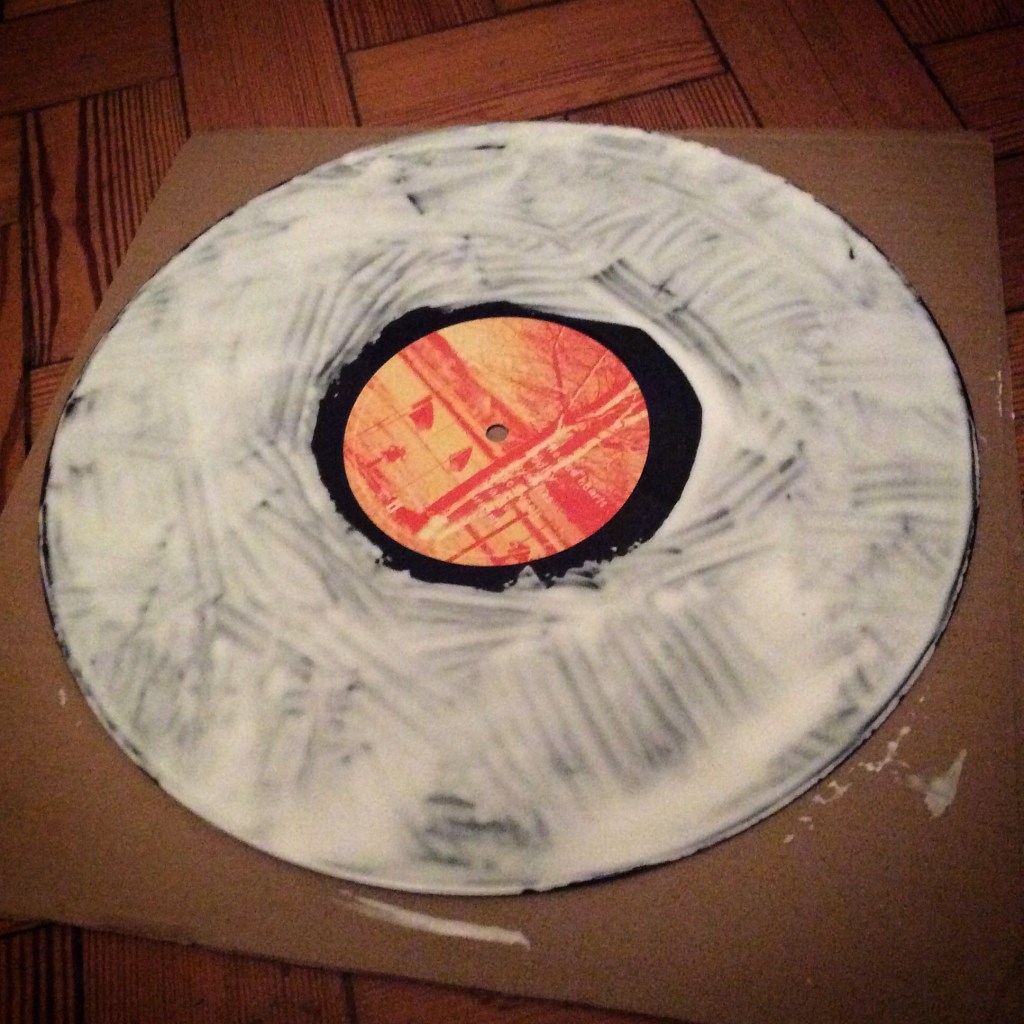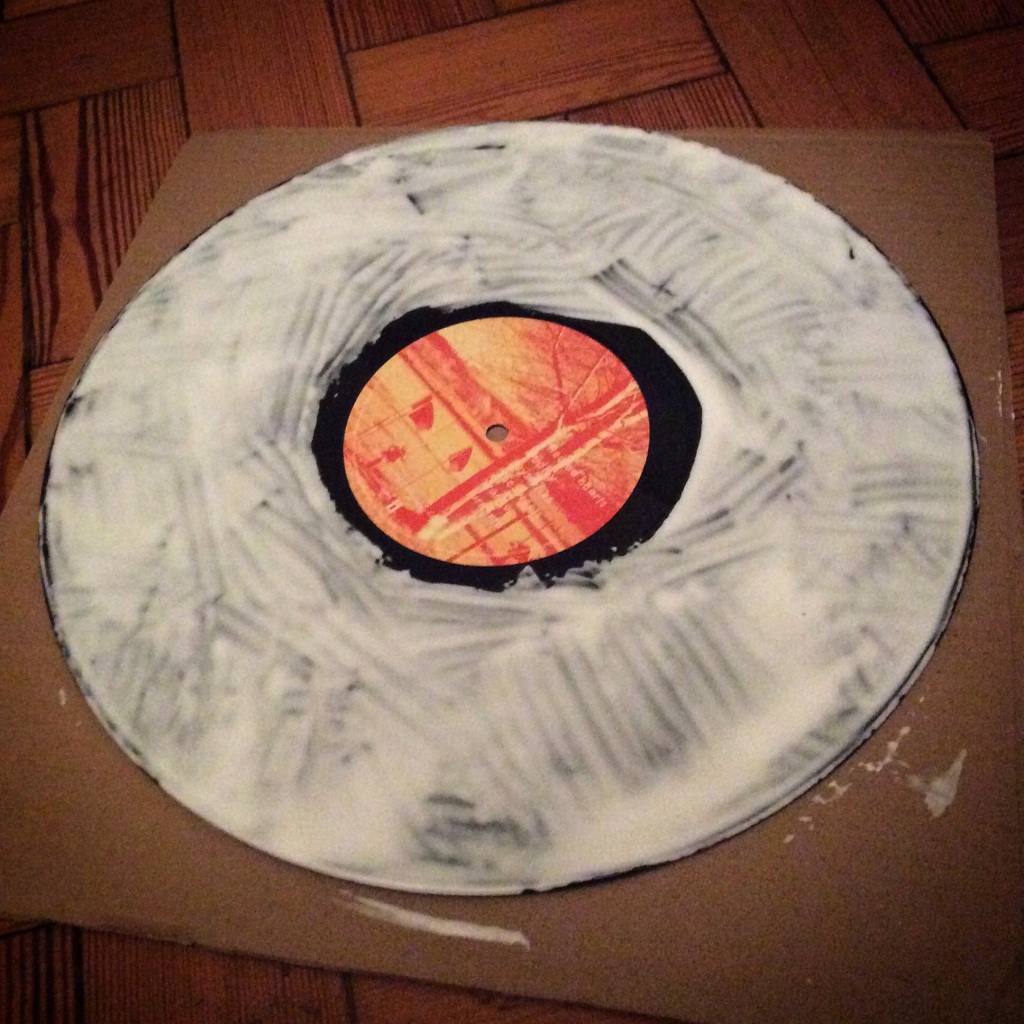How To Deep Clean Your Vinyl Records With Wood Glue…
…And Ten Things That You Shouldn’t Use To Clean Your LPs
There are a number of ways to clean and maintain your record collection in pristine condition. An occasional wipe with vinyl friendly cleaning solution (I use “Into The Groove”) using a microfibre cloth (£1 for two from Aldi) is generally sufficient. Keeping the LPs in good inner sleeves is a good way to ensure they stay cleaner than Mother Theresa’s driving licence. But what about those really grotty records? You know, the ones that are dirtier than the 1966 Uruguayan World Cup squad and grimier than Dizzee Rascal running a Tough Mudder?
When I heard about a method for cleaning vinyl using wood glue I was rather sceptical. It doesn’t intuitively sound like a good idea in the same way that leaving King Herod in charge of the babysitting doesn’t intuitively sound like a good idea.
In fact, I was struggling to think of things that might be less appropriate.
I say that, I actually found ten things that are less appropriate than wood glue. They are:
- The Dishwasher
- Toothpaste (good for teeth, less good for vinyl).
- Wire wool
- The iron
- The fuel soaked cotton bud thing that Turkish barbers use to burn away ear hair.
- The washing machine, even on a delicate setting.
- Inexpensive aftershave (can’t speak for the expensive stuff – I don’t have any)
- Nail polish remover
- Your Dyson hand held vacuum cleaner
- Cillit Bang: “Bang! And your record is gone!”
But when I found a copy of Yeah Yeah Yeah’s second LP upon which it appeared the previous owner had apparently spilled Um Bongo or some other similar sugary drink, and then attempted to clean up the mess using one of the methods listed above, I knew there was little to lose, and I thought I would (metaphorically) roll my sleeves up, and give it a go.
Sadly the record’s lacquer had already been damaged beyond repair, so the results were inconclusive. I therefore waited for another, less damaged LP to try. This time, the result was noticeably improved. The glue seeped into every pore and groove, lifting all the dirt embedded within. There was a noticeable improvement and less crackle. I have kept a couple of photos from the process to show you what happened. The method is simple….
 A record, yesterday
A record, yesterday1. Lay the LP flat on a piece of card.
2. Squeeze wood glue over the vinyl and use another piece of card to smooth it around so it covers the whole of the grooves. Don’t leave any gaps. Avoid the label in the middle. You don’t need to cover the run off groove in glue.
Some people suggest applying the glue is easier to do if you have the LP on a spinning turntable, but trust me: applying glue to moving objects is not the easy option unless you like to live dangerously, or scrape globs of glue from expensive turntables. If there’s a design fault with felt mats, it’s their lack of adaptability when it comes to having glue scraped off them without leaving a snail-like trail.
 Cover the record in wood glue
Cover the record in wood glue3. Wait overnight for the glue to dry. Try to keep the record away from your cat at this stage. As a general rule of thumb, records become more difficult to play when livestock are attached to them.
 overnight, the wood glue dries, and can be peeled off
overnight, the wood glue dries, and can be peeled off4. As it dries, the glue becomes transparent. Once dry, you can lift the film of glue from the LP leaving the pristine, clean vinyl…
That’s about it. It’s cheaper than buying an expensive vacuum record cleaner (a device that uses liquid to clean the LP and then vacuums off the dirty fluid instantly), and a useful way to improve the quality of the dodgier end of your record collection.
Have you tried this method? Or any of the less advisable methods? I’d be interested to hear your thoughts on what has worked for you, and if you have any other strange methods to clean up your vinyl…?
Was this post helpful? Every Record Tells A Story: A Vinyl Handbook is out now, packed full of vinyl-related advice and the stories behind great records. You can buy the book by clicking this link to the online store



Leave a comment